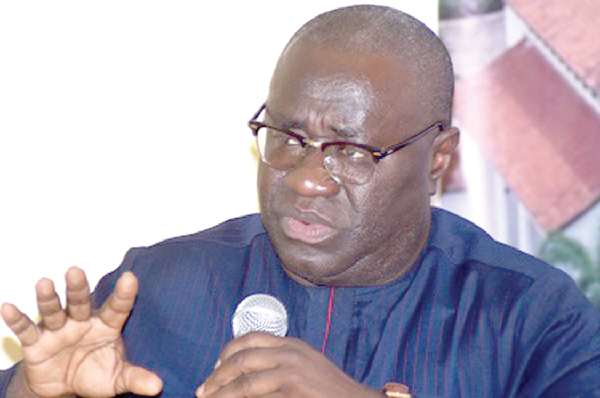The Director of the Faculty of Academic Affairs and Research at the Kofi Annan International Peacekeeping Training Centre, Professor Emmanuel Kwesi Aning, has endorsed President John Dramani Mahama’s proposal to decentralise recruitment into Ghana’s security services, describing it as a necessary move to reduce protocol abuse and offer rural youth a fair opportunity to serve.
Speaking in a phone interview on Joy FM’s AM Show on Thursday, July 17, 2025, Professor Aning said the proposal could help create a more representative and effective security system grounded in Ghana’s regional diversity.
“This is about deepening national integration,” he said. “Not everyone can travel to Accra or Kumasi. So bringing recruitment closer to the people is not just fair — it strengthens national security.”
Professor Aning’s comments followed Mr Mahama’s announcement on Tuesday, 15 July, during a durbar at Juaboso in the Western North Region. The former President told the gathering that future recruitment into the security services would be based on regional quotas.
“We also promised to decentralise recruitment into the security services,” Mr Mahama said. “We’re waiting for financial clearance from the Ministry of Finance, and when we get it, every region is going to have a quota to send young people into the security services.”
Mr Mahama also cautioned against attempts to manipulate the process, stating: “When that time comes, if your region has 100 slots and you go and bring a protocol list with 200 names, we will just throw that list away.”
He said the quota system aimed to correct long-standing imbalances in how security service jobs are allocated, particularly to the disadvantage of rural communities.
Professor Aning agreed, warning that the current system allows people with connections — often without the necessary qualifications — to be recruited, sometimes with tragic consequences.
“We’ve seen the dangers of this. That must end,” he said.
While supporting the proposal, Professor Aning noted that structural reform alone is not enough. He called for a transformation in leadership culture within the security services, rooted in integrity and public service.
“If leaders want to stop corruption and mafia-style behaviour, they must be bold,” he said. “Those who stand up for values won’t make many friends, but that is the kind of leadership the security services now need.”
He also criticised institutional heads who, in his view, hide behind vague instructions to justify poor decisions.
“If you accept orders from above that contradict your institution’s ethos, then you are not fit for purpose,” he said.
Professor Aning added that any reform must include investments in logistics, intelligence-gathering, and operational planning to prepare the security forces for present and future challenges.

